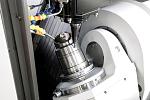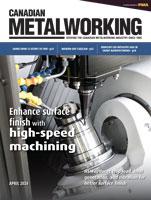Editor
- FMA
- The Fabricator
- FABTECH
- Canadian Metalworking
Look ahead by looking back
- By Joe Thompson
- March 1, 2019
A popular cliché tells us that those who do not learn from history are doomed to repeat it.
This aphorism is attributed to Spanish-American philosopher and author George Santayana who wrote in his five-volume work, The Life of Reason, that “Those who cannot remember the past are condemned to repeat it.”
No matter the wording, it’s a lesson worth learning.
Machine shops typically are full of history. Whether it’s a veteran worker, a legacy piece of equipment, or history with a longtime client, all shops have important tribal knowledge that must be held on to as turnover in staff and management occurs.
While equipment, software, and tooling are vital in all shops, very little is more important than knowledge. Machine tools, especially unique ones like gundrills and EDMs (both of which are featured in this issue), will sit idle without an experienced, knowledgeable operator.
In today’s shops history can be better retained than in the past by the collection, storage, and use of data. They say that machines are becoming smart; it’s up to us to keep up.
A machine’s history can be used to predict its future, specifically when it will require maintenance. Knowing this in advance allows shops to reduce downtime by scheduling necessary repairs and part replacement at an opportune time, not in the middle of an important job. Simply put: history matters.
Even this magazine has a long history that we still can learn from.
An article once offered the opinion that “While the past few years have seen almost an entire revolution in industrial conditions, and the trend of modern practice in the direction of increased output and efficiency in all lines; nowhere has the development been more striking, or the improvement more marked, than in the machine shop.”
The year was 1905, and the passage is from the first-ever advice column published in what then was called Canadian Machinery and Manufacturing News.
Today, some 114 years later, shops still strive to increase output and improve efficiency in all areas of business. The shops that have learned this lesson, however, now operate in a leaner, more productive manner. Continuous improvement practices are, in fact, as much about the past as they are the present and the future.
It’s the effort put into these practices that can help guarantee a future for any company.
subscribe now


Keep up to date with the latest news, events, and technology for all things metal from our pair of monthly magazines written specifically for Canadian manufacturers!
Start Your Free SubscriptionAbout the Author

Joe Thompson
416-1154 Warden Avenue
Toronto, M1R 0A1 Canada
905-315-8226
Joe Thompson has been covering the Canadian manufacturing sector for more than two decades. He is responsible for the day-to-day editorial direction of the magazine, providing a uniquely Canadian look at the world of metal manufacturing.
An award-winning writer and graduate of the Sheridan College journalism program, he has published articles worldwide in a variety of industries, including manufacturing, pharmaceutical, medical, infrastructure, and entertainment.
- Trending Articles
Automating additive manufacturing

Sustainability Analyzer Tool helps users measure and reduce carbon footprint

GF Machining Solutions names managing director and head of market region North and Central Americas

Mitutoyo updates its end-user portal

Enhance surface finish with high-speed machining

- Industry Events
CTMA Economic Uncertainty: Helping You Navigate Kitchener Seminar
- May 2, 2024
- Kitchener, ON Canada
Automate 2024
- May 6 - 9, 2024
- Chicago, IL
ANCA Open House
- May 7 - 8, 2024
- Wixom, MI
17th annual Joint Open House
- May 8 - 9, 2024
- Oakville and Mississauga, ON Canada
MME Saskatoon
- May 28, 2024
- Saskatoon, SK Canada















